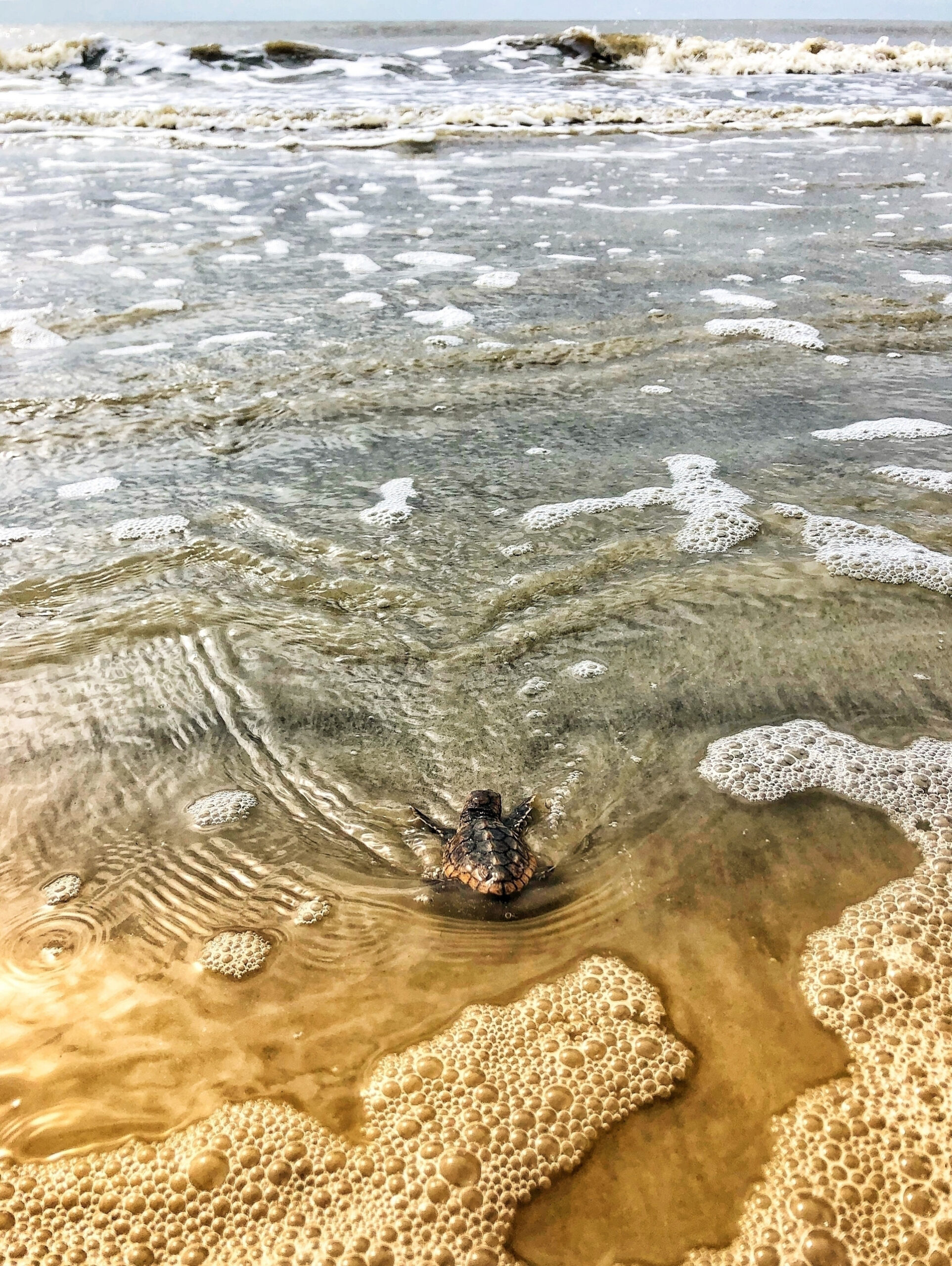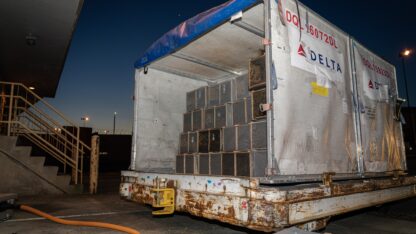A Win For Environmental Groups: Judge Blocks Dredging Plan That Threatened Georgia’s Sea Turtles

The hopper dredges the U.S. Army Corps of Engineers had planned to use can suck sea turtles up from the ocean floor and chop the animals up in their blades.
Georgia Department of Natural Resources via AP
A federal judge is blocking a plan by the U.S. Army Corps of Engineers to dredge shipping channels on the Georgia coast this summer, after state officials and environmentalists objected, saying the dredging was likely to kill nesting sea turtles.
On Thursday, U.S. District Judge Stan Baker issued a preliminary injunction, prohibiting the Corps from using the kinds of dredges that are deadliest to sea turtles near Brunswick until mid-December.
The Corps had intended to begin dredging in the area later this month.
The injunction is a win for environmental groups.
Southern Environmental Law Center had sued the Corps on behalf of 100 Miles. They said summer dredging posed too much of a threat to loggerhead sea turtles, which nest on the Georgia beaches in the summer.
The Corps regularly dredges shipping channels on the Georgia coast to keep them deep enough for cargo ships to get into the state’s ports. For the past 30 years, it’s kept dredging to the winter months in order to minimize killing turtles.
This year, the Corps changed the schedule and had intended to begin dredging near Brunswick later this month.
The hopper dredges the Corps had planned to use can suck sea turtles up from the ocean floor and chop the animals up in their blades.
The Corps said the schedule change was to help protect the endangered North Atlantic right whales that spend time off the Georgia coast in the winter.
In a hearing on Thursday, a witness for the Corps, Jonathan Broadie, chief of navigation for the Savannah District, said the change was also to make it easier to get dredging projects done outside the narrow wintertime window and given a limited number of dredging contractors.
He said that without dredging, cargo ships could be slowed down in getting into the port, causing economic impacts.
Loggerhead sea turtles have been making a comeback in Georgia, after concerns that the species could disappear from the state’s beaches.
Wildlife biologist Mark Dodd, who manages the sea turtle program at the Georgia Department of Natural Resources, described them as an “iconic” species for the coast during his witness testimony at the Thursday hearing.
He said even with protections like limiting dredging to the winter and making sure turtles can escape from shrimp nets, the population of the turtles that nest in Georgia is likely to fluctuate or even drop in the coming years, as the turtles recover from past bad years.
He said if hopper dredging was allowed to happen in the summer, when the nesting females come to the coast, it would have long-term effects on Georgia’s sea turtle numbers, since the turtles take decades to reach maturity, and return to the same beaches to lay their eggs.
In a brief filed last week, the Corps said that 100 Miles was likely to succeed in forcing the Corps to do more work to explain its dredging schedule change.








